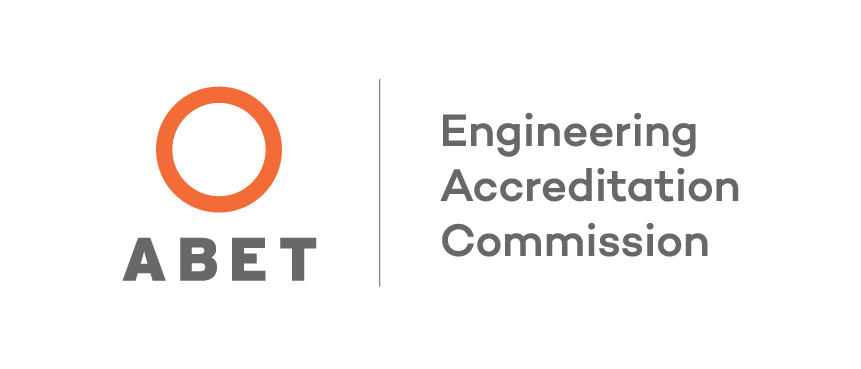Bioengineering
BS, BS/MS
Major in bioengineering
At the intersection of engineering, biology, and chemistry, you’ll discover bioengineering. Bioengineering is one of the fastest-growing engineering disciplines, with a high demand in the medical sector.
Bioengineers design and develop devices, systems, and techniques to improve patient diagnosis, treatment, and care. They utilize biotechnology to produce personalized drugs, to make biofuels and biopolymers, to engineer tissues to replace damaged organs, to grow human tissue for drug testing, and to create new diagnostic techniques.
UMassD's bioengineering program brings together the life sciences, medicine, and engineering to provide a solid academic foundation and a broad interdisciplinary approach to the field. You will:
- develop your critical thinking skills
- learn to evaluate with a broad perspective
- identify and solve problems creatively
Bioengineering is creating its own frontiers of development. You’ll join a new generation of innovators and leaders in fields with significant and growing employment opportunities including health care, public health, biomanufacturing, and biomedical engineering. The department also offers a BS degree in bioengineering with a concentration in biomedical engineering.
Your education will prepare you to contribute to the profession in an ethical and socially responsible manner and to work effectively to further your career and to benefit society.
The undergraduate bioengineering program provides multidisciplinary training that integrates the engineering sciences, life sciences, bio-research, and material design. A total of 120 credits are required for the degree and include courses in engineering, biology, chemistry, math, physics, English, and University Studies.
You’ll take 120 credits including:
- 66 credits in engineering (including general, mechanical, electrical and bioengineering)
- 7 credits in chemistry
- 47 credits in an array of course work: math (15), physics (8), English (9) and University Studies (15)
During your senior year, you will complete a capstone design project that provides real-world experience defined by current industry needs.
Biomedical engineering concentration
The Bioengineering Department also offers a bachelor's degree in bioengineering with a concentration in biomedical engineering: the biological and medical application of engineering principles in healthcare.
The bioengineering minor is aimed at students in other majors who have an interest in bioengineering. The minor provides a background in multidisciplinary life sciences and engineering, along with a foundation in biological science and engineering principles. Students gain the knowledge to be able to work in the biomedical device industry or other fields involving interactions of biology and engineering.
Completion of the minor requires a total of 18 credits consisting of 6 credits of required core courses, 6 credits of elective core courses, and 6 credits of technical elective courses. Learn more about the bioengineering minor
Starting salary for bioengineering majors, class of 2022: $71,167 - $72,500
NACE AY 2022 Data Collection of Undergraduate Alumni
Biomedical engineers will see employment growth due to new technologies and increasing applications to medical equipment and devices. Employment of bioengineers and biomedical engineers is projected to grow 10 percent from 2021 to 2031, faster than the average for all occupations. - U.S. Bureau of Labor Statistics
UMassD advantages
- Capstone projects: most senior engineering students work on real-world, industry-specific challenges that demand analysis, proposals, prototypes, and solutions.
- Center for Innovation & Entrepreneurship: UMassD's business incubator in Fall River offers opportunities to work with UMassD faculty members and start-up companies.
- Center for Scientific Computing and Visualization Research: This interdisciplinary center provides collaboration opportunities and on-campus supercomputing facilities for faculty and students interested computationally-driven research.
- Internships & co-op: gain hands-on experience that will be valuable for career success.
- UMassD’s proximity to the Greater Boston area provides easy access to an epicenter of biotechnology/pharmaceuticals/medical devices companies.
International (F-1) students who receive science, technology, engineering, and mathematics (STEM) degrees may be eligible to apply for a 24-month extension of their post-completion optional practical training (OPT). To learn about the eligibility criteria and detailed steps to apply, please review the International Student & Scholar Center (ISSC) OPT page and USCIS resources. F-1 students must consult with the ISSC to apply for STEM OPT.
UMass Dartmouth offers a great transfer experience for students who:
- have graduated from an accredited community college, or
- have earned college credits from an accredited college or university
Expand your opportunities
Your undergraduate degree and research experiences will prepare you for a variety of opportunities:
- Accelerated BS-BNG/MS-BMEBT
- UMass Biomedical Engineering & Biotechnology (BMEBT) PhD program
- Graduate programs in engineering, the sciences, and other fields
- Medical school or other health professional programs
/prod01/production-cdn-pxl/media/umassdartmouth/college-of-engineering/bioengineering/220414-UMD-ENGINEERING-DAY-TWO-210-1-850X566.jpg)
/prod01/production-cdn-pxl/media/umassdartmouth/programs/featurebox-honors.jpg?text=fallback320)
/prod01/production-cdn-pxl/media/umassdartmouth/programs/featurebox-study-abroad.jpg?text=fallback320)
/prod01/production-cdn-pxl/media/umassdartmouth/programs/featurebox-OUR.jpg?text=fallback320)
/prod01/production-cdn-pxl/media/umassdartmouth/programs/featurebox-university-studies.jpg?text=fallback320)
/prod01/production-cdn-pxl/media/umassdartmouth/profiles/engineering/bioengineering/ChristopherBrigham-1.jpg?text=fallback320)
/prod01/production-cdn-pxl/media/umassdartmouth/profiles/engineering/Laura-HANZLY-17.jpg?text=fallback320)
/prod01/production-cdn-pxl/media/umassdartmouth/profiles/engineering/20160901-lamya-karim-dac-057.jpg?text=fallback320)
/prod01/production-cdn-pxl/media/umassdartmouth/profiles/engineering/bioengineering/Milana2.jpg?text=fallback320)
/prod01/production-cdn-pxl/media/umassdartmouth/profiles/engineering/bioengineering/221005-QUINGUO-FAN.jpg?text=fallback320)
/prod01/production-cdn-pxl/media/umassdartmouth/profiles/engineering/Tracie-Ferreira.jpg?text=fallback320)
/prod01/production-cdn-pxl/media/umassdartmouth/college-of-engineering/bioengineering/YongKim.jpg?text=fallback320)

